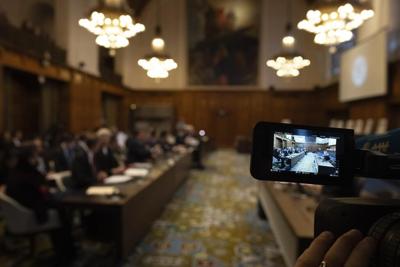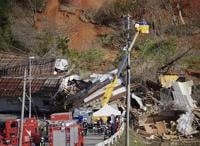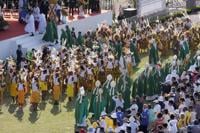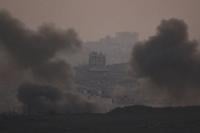THE HAGUE, Netherlands (AP) — Armenia insisted Tuesday that the top United Nations court has jurisdiction to hear its case accusing Azerbaijan of breaching an international convention that aims to stamp out racial discrimination.
At a preliminary hearing Monday, Azerbaijan had urged the International Court of Justice to toss out for the Armenia filed in 2021 that accuses Azerbaijan of a “state-sponsored policy of Armenian hatred” that has led to “systemic discrimination, mass killings, torture and other abuse.”
The legal dispute stems from long-standing tensions that erupted into a 2020 war over Nagorno-Karabakh that left more than 6,600 people dead. The region is within Azerbaijan, but had been under the control of ethnic Armenian forces backed by Armenia since the end of a separatist war in 1994.
Azerbaijan argued that Armenia could not bring the dispute to court because the two countries had not first engaged in serious negotiations to settle their differences. The country's lawyers also told judges that most of the allegations in Armenia's case fall outside the scope of the Convention on the Elimination of all forms of Racial Discrimination.
But the leader of Armenia’s legal team at the world court, Yeghishe Kirakosyan, rejected both arguments, telling judges that “neither of Azerbaijan’s objections stands up to even cursory scrutiny.”
Another lawyer on Armenia's team, Alison Macdonald, told judges that all of Armenia's allegations of violence by Azerbaijanis “are at the very least capable of constituting racial discrimination” under the convention.
"Indeed, if proven, it is hard to imagine more flagrant breaches of the convention and of the values which it enshrines. So Armenia respectfully submits that these claims can and must proceed to the merits,” she added.
No date has been set for judges to rule on jurisdiction. If the case goes ahead, it will likely take years to resolve. Azerbaijan also has filed a case accusing Armenia of breaching the same racial discrimination convention. Hearings on Armenia's challenge to the court's jurisdiction in that case will be held next week.
The 2020 conflict ended with a Russia-brokered cease-fire agreement that granted Azerbaijan control over parts of Nagorno-Karabakh as well as some adjacent territories.
The conflict flared again last year when Azerbaijan waged a lightning in Nagorno-Karabakh that resulted in the vast majority of the region’s 120,000 residents fleeing.
Kirakosyan called the campaign "an unprovoked attack, killing hundreds and forcing over 100,000 ethnic Armenians to flee their ancestral homes. To this day, almost 200 remain missing and their families suffer without knowing the fate of their loved ones.”
In December, the two sides agreed to on a peace treaty. However, many residents of Armenia’s border regions have resisted the demarcation effort, seeing it as Azerbaijan encroaching on areas they consider their own.
Armenia’s prime minister said last month that the Caucasus nation needs to define its border with Azerbaijan quickly to avoid a new round of .








































